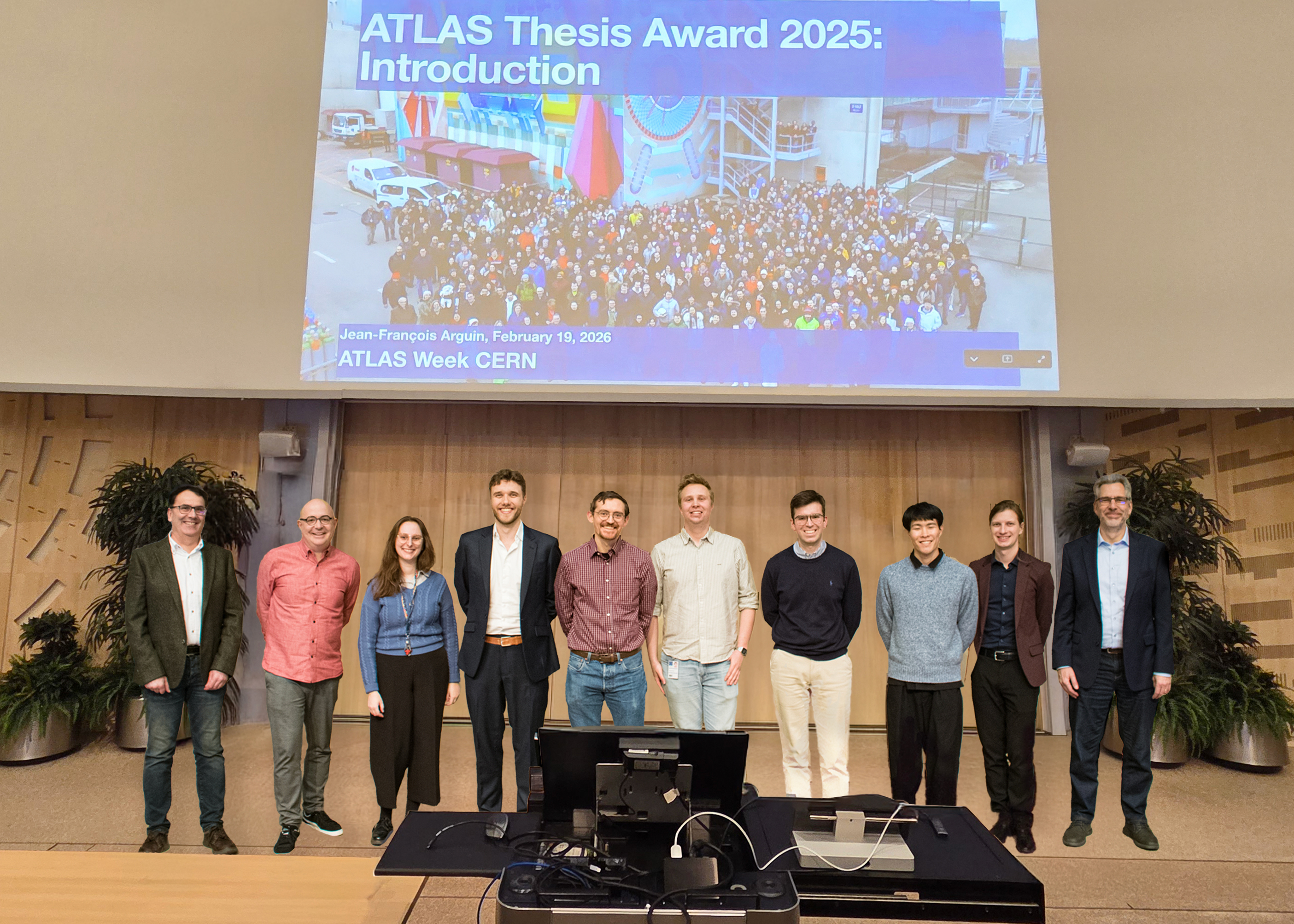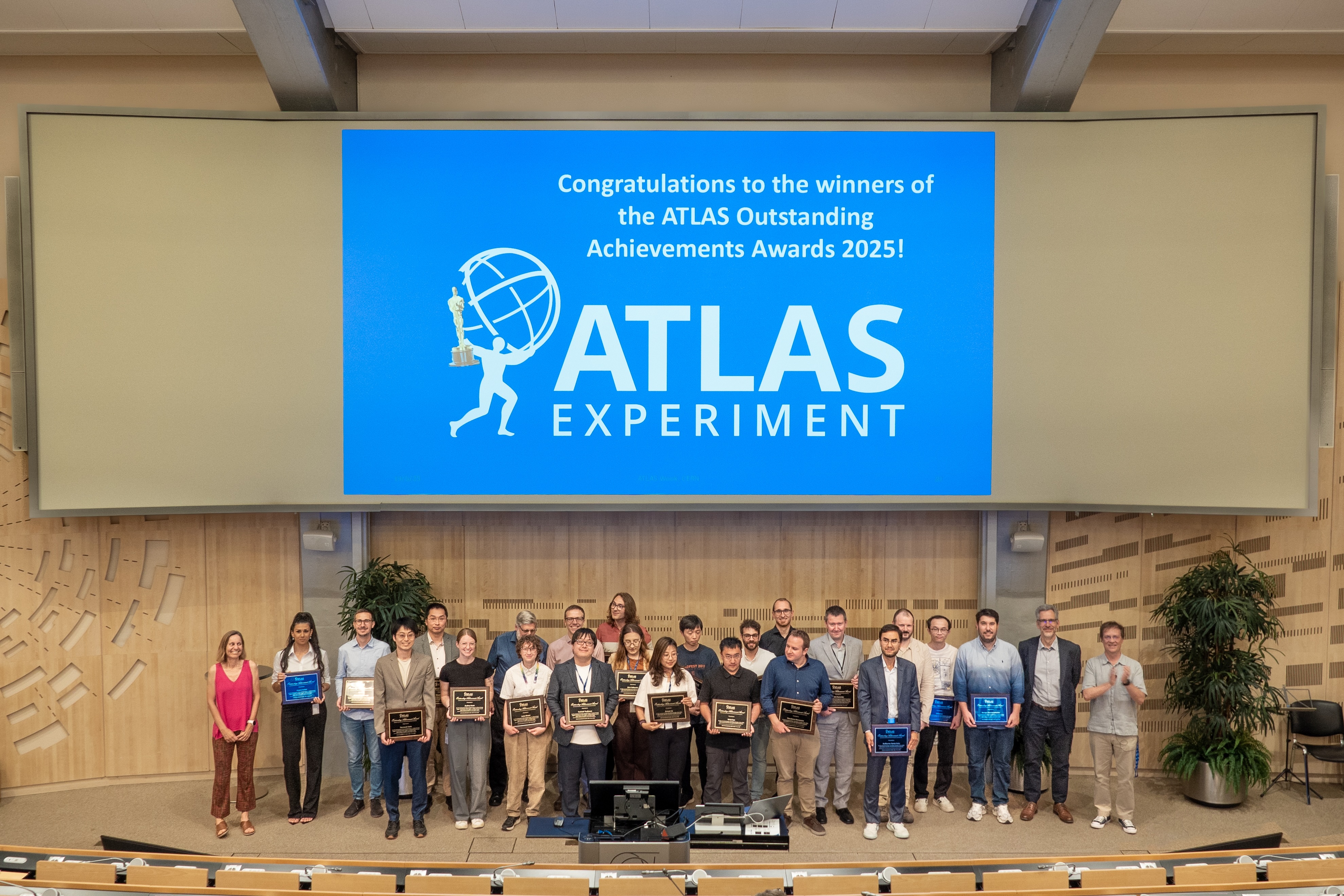And the ATLAS Thesis Awards go to…
8 March 2022 | By

Behind nearly every great ATLAS result lies an outstanding PhD student! Students are a key cohort of the ATLAS Collaboration, making critical contributions to the experiment while working on their degree. Every year, the Collaboration comes together to celebrate their work in the context of the ATLAS Thesis Awards.
ATLAS announced the winners of the 2021 edition of its highest prize for students during a virtual ceremony held on 24 February 2022. The recipients are Jackson Carl Burzynski (Simon Fraser University), Giulia Di Gregorio (Universita & INFN Pisa), Manuel Guth (Universite de Geneve), Alexander Leopold (KTH Royal Institute of Technology), Stefan Popa (Transilvania University of Brasov) and Zachary Michael Schillaci (Brandeis University).
Opening the ceremony was Thesis Awards Chair Tomasz Bold, who praised the high quality of the 36 nominations. “On behalf of the award committee, I would like to congratulate all of the students and their supervisors for the excellent work,” says Tomasz. “We selected the winners out of many outstanding physics results and valuable service work to the Collaboration.” The awarded theses can cover any area of ATLAS science, from physics analysis to detector development, operations, software and performance studies.
Following Tomasz’s talk, it was time for a virtual group picture! The students were joined by ATLAS Spokesperson Andreas Hoecker and Collaboration Board Chair Lucia Di Ciaccio, who also presented them with the glass model of ATLAS they would receive by mail. This is the second year the awards have been held virtually and, indeed, these students spent much of their time on ATLAS working from home. Completing a PhD is hard enough in the best of times – the success of these students despite the pandemic must be commended.





As per tradition, the winners each gave a presentation on their time spent as ATLAS students, sharing their experiences and summarising their research. Their talks reflected the diversity of ATLAS research, including searches for exotic new particles, novel detector design for the HL-LHC upgrade of ATLAS and precision measurements of the Standard Model. They also acknowledged the mentors, family members and peers who had supported them throughout their PhD.
The award ceremony ended with virtual applause from members of the ATLAS Collaboration. “These awards are a unique opportunity to shed light on the essential work carried out by students,” concludes Tomasz. “We continue to encourage ATLAS members to nominate their student’s excellent work.”
Read the winning theses:
- Jackson Carl Burzynski: A Search for Exotic Higgs Decays or: How I Learned to Stop Worrying and Love Long-lived Particles
- Giulia Di Gregorio: Search for the Higgs boson produced in association with a vector boson and decaying into a pair of b-quarks using large-R jets with the ATLAS detector
- Manuel Guth: Search for ttH(bb) Production in the Lepton + Jets Channel and Quark Flavour Tagging with Deep Learning at the ATLAS Experiment
- Alexander Leopold: Dark Matter Searches in Association with a Higgs Boson using 13 TeV ATLAS Data and Performance Evaluation of the High-Granularity Timing Detector
- Stefan Popa: The Read Out Controller ASIC for the ATLAS Experiment at LHC
- Zachary Michael Schillaci: Precision measurements of four-lepton production in 13 TeV proton-proton collisions with the ATLAS detector




